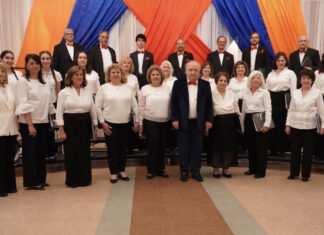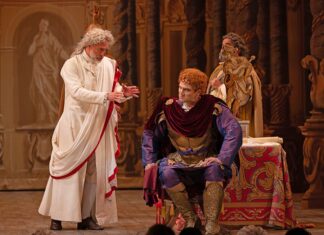By Maydaa Nadar
Special to the Mirror-Spectator
ALEXANDRIA, Egypt — Armenian-Egyptian actress Nora Armani in October received the Lifetime Achievement Award at the 38th Alexandria Mediterranean Film Festival.
Armani relates what is the wellspring of her artistic career: “Being decisive is very important. Don’t expect that someone will fall from the sky to make your dreams come true. Do it regardless of where you are, at school, or at university. You can even start in the hall where we are sitting now, but first, you have to take the decision. The universe will not give you what you want unless you reveal it to it. Later, your choice must be backed up by persistence and continuity.”
At a very young age, she directed scenes from books they had at school. And serendipitously, she got her start right here in Alexandria. She says: “My aunt was living in Alexandria, so we used to spend the summers there. My brother, cousins, and I enjoyed acting in children’s plays. That’s where and how my artistic journey actually began.”
When she turned 15, she decided to be an actress and had the chance to perform at the Armenian Cultural Club in Cairo. After finishing school, she acted at the Theatre Group of the American University in Cairo (AUC), appearing in plays by Shakespeare and Camus among others. She continues: “I wanted to go to England because it is a good place for studying acting; however I was informed by the Royal Academy for Dramatic Art (RADA) that it was too late for that year to join but that they could give me an audition in January for the following September. At the age of 22, you think that a year is a long period of time. At the same time, I got an invitation from the London School of Economics, which is a top university in its field, to do a Master’s Degree in sociology, which was my subject of study at the AUC. I didn’t hesitate and took the offer. Acting was put to the side, but not completely forgotten, as, throughout the year that I was doing the Master’s Degree, I was also acting.”









